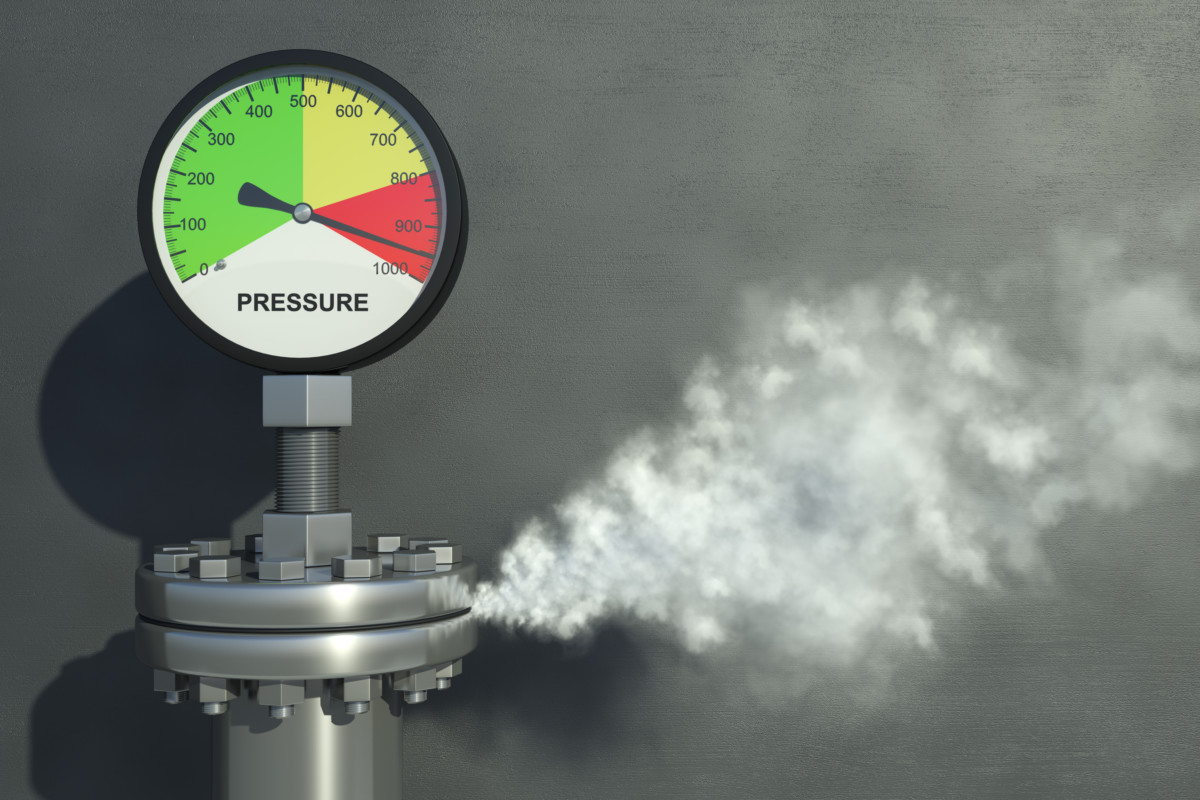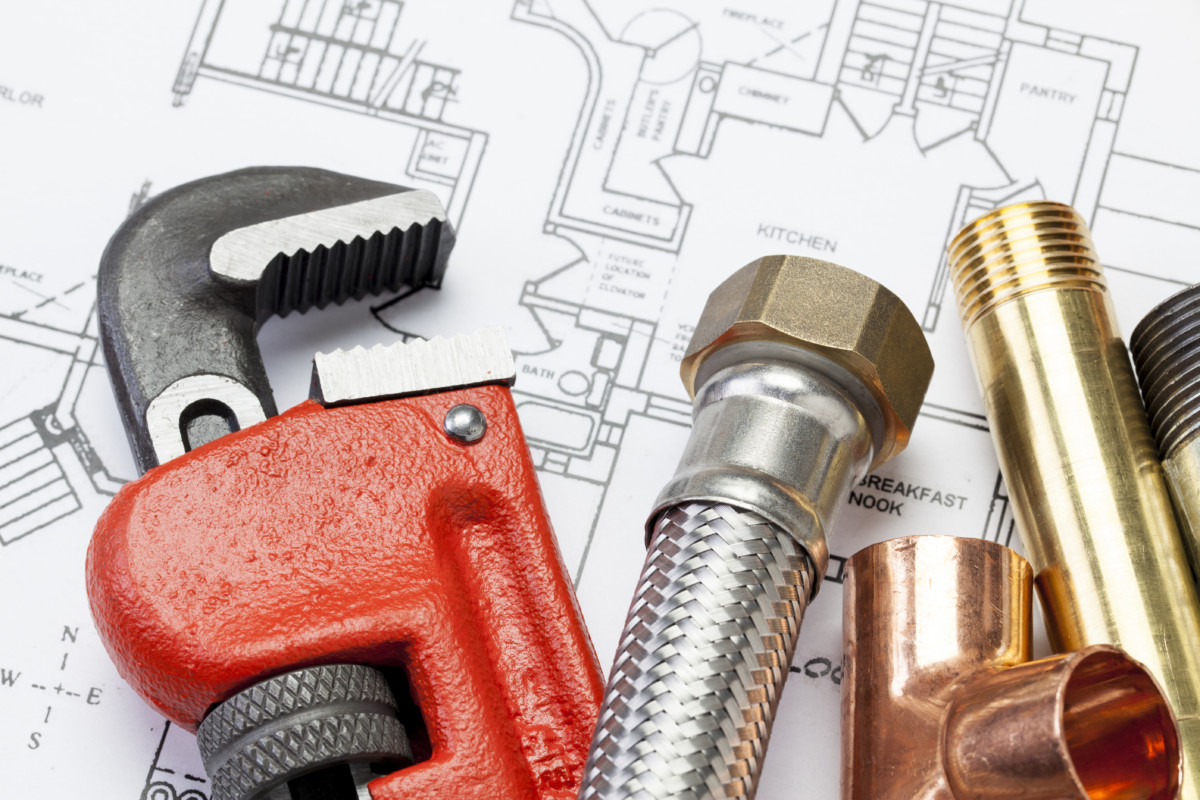Natural gas is a colorless, odorless gas used in homes throughout the U.S., most commonly in stoves and water heaters. They’re a popular and energy-efficient addition that can help reduce your carbon footprint and increase your home’s value. In fact, homes with gas hookups tend to sell for more than those without. Unfortunately, natural gas often leaks, causing health and environmental concerns. Other gasses can cause problems as well, including propane, radon, and refrigerants.
Gas leaks are extremely common. A gas pipeline incident occurs every 40 hours in the U.S., leading to explosions, fires, and environmental destruction.
Because of the danger, everyone must be aware of gas leaks, regardless of their living situation. Whether you live in a house in Boston or rent an apartment in Round Rock, TX, read on to learn how to detect a gas leak in your home.

How to detect a gas leak
Gas leaks are one of the most serious safety hazards in a home. Not only can they lead to explosions or fires, but they can also cause serious health issues such as carbon monoxide poisoning. It’s essential to identify the signs of a gas leak to prevent potential harm to yourself, your family, and your property.
1. Install a gas leak detector
If you don’t have them already, install a gas leak detector near every sleeping area in your home. Every model detects carbon monoxide, but many are also sensitive to other harmful pollutants, including propane and radon.
If you want to use a homemade method, you can mix a teaspoon of soap into a cup of water, pour it over a suspected gas leak, and see whether bubbles show up. However, this is a last resort that should not replace a gas leak detector.
2. Smell for rotten eggs
Gas is odorless in its natural state, so companies add odorants during processing to help consumers detect leaks. This odor often smells like rotten eggs. If you smell rotten eggs in your home, you likely have a gas leak.
3. Listen for hissing sounds
Large gas leaks in pipes and appliances may produce hissing sounds. Once per month, check your appliances for hissing sounds as regular maintenance.
4. Look for bubbles outside your home
Gas generally enters your home through underground pipes, which attach to the local gas main under the road. If you notice air bubbles in your soil or puddles, your pipes may be leaking.
5. Notice dead or dying plants
Natural gas prevents a plant’s roots from absorbing oxygen, which will quickly kill it. Check for loose leaves on trees (outside of winter), wilting flowers, drooping stalks, and yellowish patches of grass.
6. Pay attention to physical symptoms
Gas exposure is dangerous, and checking for physical symptoms should be a last resort. Symptoms of exposure include headaches, dizziness, fatigue, nausea, and irregular breathing. Prolonged exposure can lead to natural gas poisoning, which can lead to memory loss and death. If you’re experiencing symptoms of gas exposure, call a professional, maybe even 911, and seek healthcare as soon as possible.
7. Monitor gas usage
Gas leaks can be extremely minor and hard to detect. In these cases, checking your utility bill and comparing it to prior months or neighborhood averages can be a good way to determine if you have a leak. 
Who to call for a gas leak
If you think you have a gas leak, turn off your electricity and call a professional plumber, emergency utility maintenance, or 911. Most municipal gas companies have a 24-hour emergency line. Don’t use a landline if you suspect you have a gas leak; they can cause a spark, which is extremely dangerous.
You should never try to pinpoint the exact location of a gas leak – leave that to trained professionals. Exposure to carbon monoxide and methane is dangerous and can lead to explosions, physical symptoms, and property damage.
What causes a gas leak?
Gas leaks can lead to fires, explosions, and other serious problems. Because of this, it’s important to understand how gas pipes and appliances begin leaking, so you can prevent leaks in your home. Here are the five most common causes.
1. Fitting and connection issues
Fittings are the pipes, valves, and meters used to transport natural gas from the local gas main to your home. Connections are the points connecting different fittings. Poorly installed fittings and connections are common, and even expertly installed fittings can develop leaks over time.
2. Corrosion or damage to gas pipes
Gas pipes develop corrosion over time, which can cause leaks to develop. This is extremely common. In fact, corrosion was the leading cause of gas leaks in the U.S. from 2009-2018.
3. Poor appliance maintenance and installation
Gas can leak if your appliances aren’t installed correctly and if you don’t maintain them. Common issues include damaged or worn-out gas hoses, burners, and poorly fitted seals.
4. Appliance malfunctions
Even new appliances can malfunction with regular use. If the malfunction affects the normal flow or combustion of the natural gas, it can leak.
5. Natural disasters or external damage
Weather, construction work, and other physical damage can all cause gas leaks. For example, an earthquake may rupture gas mains, or excavation work can accidentally hit your home’s gas pipes.
Refrigerant leaks
Pay attention to appliances that use refrigerants as well. Common gasses include Freon and isobutane, both of which are harmful. If your refrigerator, A/C unit, or another cooling appliance suddenly stops working, shut them off immediately and check for leaks. Many standard gas leak detectors also detect refrigerants, so ensure you get one that does.
Additionally, never try to fix your appliances; many states prohibit nonprofessionals from working with refrigerants due to their dangerous properties. If you detect a refrigerant leak, call a professional immediately.

How to prevent gas leaks
Preventing leaks is the first line of defense for every home. While it may take time extra time, it’s critical to maintaining a healthy home. Here are some ways to stop gas leaks before they start.
- Ensure your gas pipes were installed by a professional: Improper installation is a leading cause of gas leaks in the U.S. If you’re installing a new appliance or upgrading an old system, make sure you hire a qualified master plumber.
- Maintain fittings and appliances: Gas pipes and appliances wear down over time. You can check appliances yourself, but it’s best to schedule yearly gas maintenance with a master plumber.
- Upgrade appliances: Old appliances are more likely to break and leak. They’re also less efficient and pricier to maintain. Upgrading your stove, water heater, or dryer can help reduce the risk of gas leaks.
- Switch to electricity: The most effective and permanent way to prevent gas leaks is to phase gas out of your home. Consider switching to all electric appliances and installing solar panels to mitigate the higher electric bill.
Final thoughts on gas leak detection
Gas leaks are common, and detecting them is critical to maintaining a safe and healthy home. Although it’s an efficient and growing energy source, natural gas has its drawbacks, including frequent and dangerous leaks, environmental concerns, and indoor air quality issues.
To detect and prevent gas leaks, make sure to install a carbon monoxide detector, as well as a refrigerant detector. Ensure your pipes, fittings, and appliances are installed correctly, and hire a professional for yearly check-ups. If you detect a leak, turn off your electricity, leave your house, and call your local gas company or 911. To eliminate the risk of leaking gas, consider switching to electric appliances and phasing gas out of your home.
If you detect any signs of a gas leak in your house or think you have been exposed, contact your local utility provider or call 911 immediately.
- SEO Powered Content & PR Distribution. Get Amplified Today.
- Platoblockchain. Web3 Metaverse Intelligence. Knowledge Amplified. Access Here.
- Source: https://www.redfin.com/blog/how-to-detect-a-gas-leak/
- 1
- a
- addition
- AIR
- All
- already
- Although
- and
- Another
- appliances
- AREA
- attach
- attention
- because
- before
- BEST
- Bill
- Break
- breathing
- call
- carbon
- Carbon monoxide
- cases
- Cause
- causes
- causing
- check
- checking
- Common
- commonly
- Companies
- company
- comparing
- Concerns
- Connecting
- connection
- Connections
- Consider
- construction
- Consumers
- contact
- correctly
- corrosion
- critical
- Cup
- DANGER
- Dangerous
- dead
- Death
- Defense
- Determine
- develop
- different
- disasters
- Dont
- DOT
- down
- drawbacks
- dryer
- during
- Dying
- Earthquake
- Effective
- efficient
- Eggs
- Electric
- electricity
- eliminate
- emergency
- energy
- ensure
- Enters
- environmental
- environmental concerns
- essential
- Ether (ETH)
- Even
- Every
- everyone
- example
- EXCAVATION
- experiencing
- expertly
- explosions
- exposed
- Exposure
- external
- extra
- extremely
- family
- fatigue
- fires
- First
- fitting
- Fix
- flow
- flower
- frequent
- from
- GAS
- gas pipeline
- generally
- get
- good
- Growing
- Hard
- harmful
- headaches
- Health
- healthcare
- healthy
- help
- here
- higher
- hire
- Hit
- Home
- Homes
- House
- How
- How To
- However
- HTTPS
- identify
- immediately
- important
- in
- incident
- include
- Including
- Increase
- install
- installed
- installing
- internal
- issues
- IT
- Kill
- Last
- lead
- leading
- leak
- Leaks
- LEARN
- Leave
- likely
- Line
- live
- living
- local
- location
- Look
- loss
- Main
- maintain
- maintenance
- make
- many
- master
- max-width
- Memory
- methane
- method
- minor
- Mitigate
- model
- Monitor
- Month
- months
- more
- most
- municipal
- Natural
- Natural Gas
- Near
- New
- normal
- Old
- ONE
- Other
- outside
- Oxygen
- Patches
- Pay
- permanent
- phase
- physical
- pipeline
- pipes
- plato
- Plato Data Intelligence
- PlatoData
- points
- poor
- Popular
- possible
- potential
- prevent
- Prior
- problems
- processing
- produce
- professional
- professionals
- prohibit
- properties
- property
- provider
- quickly
- Read
- Redfin
- reduce
- Regardless
- regular
- Rent
- renters
- replace
- Resort
- Risk
- road
- Rock
- round
- safe
- Safety
- schedule
- Seek
- sensitive
- serious
- should
- show
- Signs
- situation
- Smell
- So
- soap
- some
- Soon
- Source
- Spark
- standard
- start
- State
- States
- Stop
- Stops
- such
- suspected
- Symptoms
- system
- Take
- The
- their
- Think
- Through
- throughout
- time
- tips
- to
- trained
- transport
- Trees
- TURN
- u.s.
- under
- understand
- unit
- use
- utility
- value
- valves
- Water
- ways
- whether
- which
- while
- will
- Winter
- without
- Work
- working
- Your
- yourself
- zephyrnet












